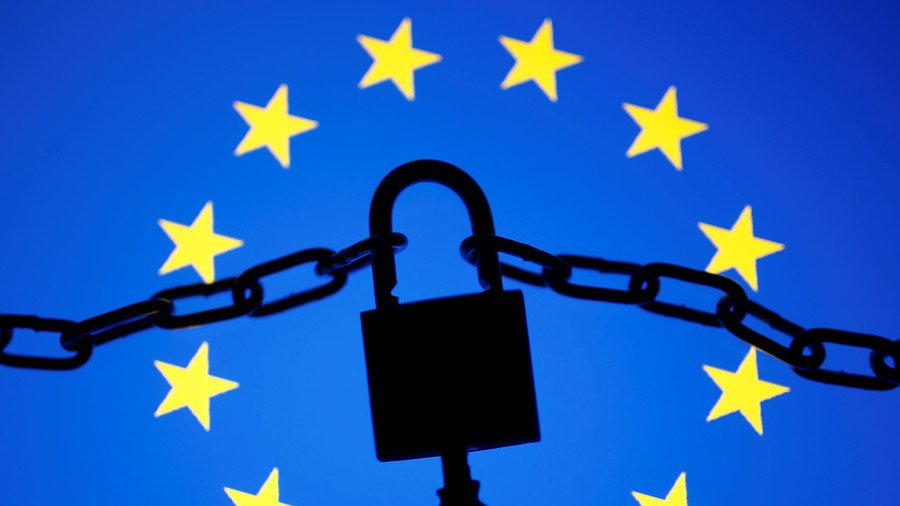Happy GDPR day! US news sites blocked, FB sued as EU privacy rules come into force

Blocked from viewing US news outlets, overwhelmed by emails, Europeans shared memes and cheered. Facebook and Google, though, may have little to cheer about, now that they’re sued for “forced consent” over new privacy rules.
The new set of strict regulations, also known as the General Data Protection Regulation (or briefly GDPR), was passed in April 2016 and came into effect on Friday to safeguard and protect EU residents from having their information collected and possibly misused.
Coming into force at the time as high-profile privacy scandals rocked companies such as Google and Facebook, GDPR states that all companies operating in the EU must get a consent to collect personal data, or else they will face massive fines. If companies fail to comply with the rules, they can expect to be fined up to €20 million or four percent of their annual turnover – whichever is greater.
"Happy GDPR" #GDPRdaypic.twitter.com/JGutPnrCst
— Director of Schmooze (@LernouxDock) 25 мая 2018 г.
While the idea of being banned from reading news did not sit all too well with Europeans, some of the top US outlets preferred to stay barred in Europe rather than agree to the new set of privacy rules.
The list of includes high-profile publications as The Los Angeles Times and The Chicago Tribune. USA Today and Washington Post, on the other hand, chose to remain accessible as they posted disclaimers, making it clear they were still collecting data, while readers browsed their websites.
That‘s called european progress. US sites (like @latimes and @chicagotribune) close down for european visitors. #DSGVO#GDPRpic.twitter.com/bArJ9pqdeP
— OnlineMarketing.de (@OnlineMarktn_de) 25 мая 2018 г.
One Austrian activist wasted no time in challenging Facebook and Google. Max Schrems, 23, identified new rights that no one has ever spoken about – the right to say “no” to the “forced consent.” Schrems claimed the “yes or no” option was “totally against the law” and violated human rights. So he decided to sue Google, Facebook, WhatsApp and Instagram. “If there is forced consent, there is no consent,” he concluded.
Other Europeans took things in their stride, responding to the abrupt blackout, preceded by an avalanche of emails urging Europeans to agree to the new privacy rules, with cartoons and memes.
Us trying to sort them emails out. How are you coping with GDPR emails? #GDPRday#FridayFeelingpic.twitter.com/RkcvaMdhGc
— Fundamentals (@werfundamentals) 25 мая 2018 г.
They cheered and wished each other “Happy GDPR day,” hoping that from this day on, their inboxes, just like their lives, will become normal.
Happy GDPR Day everyone! May your inboxes be full and data secure 🤓💻 #GDPRday#DataProtection#gdpr
— Monica Olsen (@IamMonicaOlsen) 25 мая 2018 г.
They grieved the loss of their beloved websites like others would the loss of a partner.
Happy GDPR eve pic.twitter.com/5nnRiczHGV
— TwistedDoodles (@twisteddoodles) 24 мая 2018 г.
And they even begged the websites not go.
Currently playing our self-curated "Now That's What I Call GDPR" playlist in the studio office! Featuring such hits as Don't Leave Me This Way, When Will I See You Again & Please Don't Go! #GDPRdaypic.twitter.com/90sOq8jL65
— Onhold Studio (@onholdstudio) 25 мая 2018 г.














